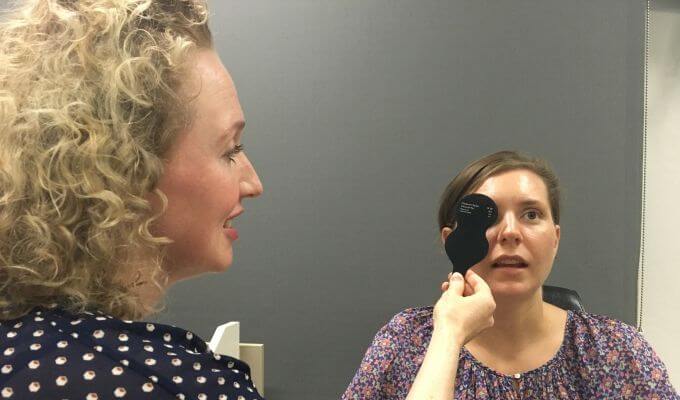Examine This Report about Adult & Paediatric Eye Surgery
Table of ContentsThe Facts About Conjunctivitis UncoveredExamine This Report about AmblyopiaSee This Report about ConjunctivitisThe 10-Second Trick For Eye Exam
Ophthalmologists are clinical physicians that specialize in the medical diagnosis and also treatment of eye and also vision issues. What is the difference in between an eye doctor and also an eye doctor, then? What regarding opticians? These 3 kinds of eye treatment specialists have rather similar-sounding names as well as overlapping work descriptions. It can be puzzling in the beginning glance.They can not give eye examinations, compose prescriptions, or detect or deal with eye troubles. Offer eye examinations, vision screening, and also prescriptions for glasses or contact lenses.
:max_bytes(150000):strip_icc()/optometrist-vs-ophthalmologist-5094869_final-0d8eca1d944a4b54b1423065ac2e780f.jpg)
Eye doctors diagnose and also treat injuries, infections, conditions, as well as problems of the eye. Therapies can include medication taken by mouth (by mouth) or topically (in the eye), surgical procedure, cryotherapy (freeze therapy), as well as radiation treatment (chemical treatment). Ophthalmologists go to clinical college after that receive several years of specialty training in the medical and also surgical treatment of the eye.
8 Easy Facts About Eye Exam Explained
As they are the only physician that can deal with all eye disorders, ophthalmologists see a wide range of eye conditions, including: How often should you have an eye test? What are symptoms that suggest you may have an eye trouble that requires to be inspected by an ophthalmologist? The American Academy of Ophthalmology advises: As youngsters's eyes are expanding as well as altering swiftly, they ought to get a vision screening.
Grownups who have healthy and balanced eyes and superb vision must have four comprehensive eye exams: one in their 20s, 2 in their 30s, and one at age 40. These checkups might allow the ophthalmologist to catch an eye illness or vision changes beforehand. By the time you notice signs and symptoms, you may already have some vision loss (EYE CHECKS).

Individuals who are at a greater danger of eye illness may need to get an eye test more typically. After age 65, your eyes must be checked every one to two years.
Your view depends on seeing the best eye medical professional at the appropriate time. When it's time to "get your eyes examined," make certain you are seeing the right eye care specialist for your demands.
All about Adult Cataract

is a clinical or osteopathic physician that focuses on eye and also vision treatment. Ophthalmologists vary from eye doctors and opticians in their levels of training and also in what they can identify and also deal with (https://codepen.io/drcrlinecatt/pen/eYMNxyY). As a medical doctor that More Bonuses has finished university and also a minimum of 8 years of added clinical training, an ophthalmologist is accredited to exercise medicine and also surgery.
Several eye doctors are additionally involved in scientific research on the causes and also remedies for eye illness and also vision problems. SUBSPECIALISTS: ADDED UNDERSTANDING AND ALSO TRAINING FOR CERTAIN EYE requires While eye doctors are educated to care for all eye troubles and conditions, some Eye M.D.s specialize in a certain location of medical or surgical eye care.
He or she typically finishes 1 or 2 years of extra, much more comprehensive training called a fellowship in among the main subspecialty locations such as glaucoma, retina, cornea, pediatric medicines, neurology and also cosmetic surgery, as well as others. This added training and also understanding prepares an ophthalmologist look after even more complex or details conditions in certain areas of the eye or in specific teams of clients.
An optometrist is not a medical physician. An eye doctor receives a physician of optometry (OD) level after completing four years of optometry school, preceded by 3 years or more years of college. They are licensed to practice optometry, which mainly entails doing eye tests and vision examinations, prescribing as well as giving rehabilitative lenses, detecting specific eye abnormalities, as well as prescribing medicines for sure eye diseases.
Not known Details About Paediatric Ophthalmology
They make use of prescriptions supplied by eye doctors or eye doctors, however do not test vision or create prescriptions for aesthetic correction. Lens are not permitted to identify or treat eye illness. All of us depend upon our vision in more manner ins which we might realize. Without healthy and balanced vision, our ability to function, play, drive and even identify a face can be considerably impacted.
That's why it is so essential to see an ophthalmologist for a complete medical eye test by age 40, and then as usually as recommended by your Eye M.D.
A full, clinical eye examination by an Eye M.D. can be the initial step toward conserving your sight. Protruding of one or both eyes; Dark drape or shroud that obstructs your vision; Lowered vision, even if temporary; Diabetes mellitus; Distorted vision; Dual vision; Excess tearing; Eyelid abnormalities; Family background of eye disease; Halos (tinted circles around lights); High blood stress; HIV or AIDS; Injury to the eye; Loss of outer (side) vision; Misaligned eyes; New drifters (black "strings" or flecks in the vision) and/or flashes of light; Pain in the eye; Thyroid disease-related eye troubles (Graves' illness); Uncommon red eye.